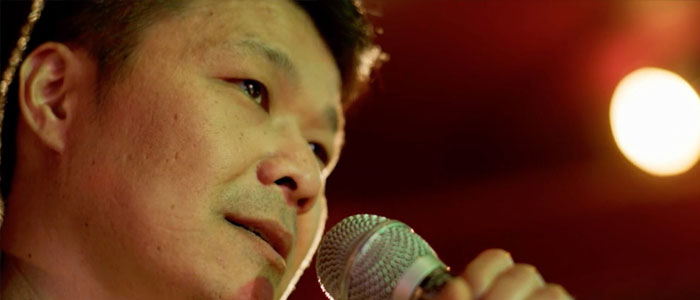***½/****
starring Wa Yang, Qu Kue, April Charlo, Gia Vang
written and directed by Vera Brunner-Sung
by Walter Chaw Vera Brunner-Sung’s Bitterroot opens with an epigraph in Hmong: “Please come back to your house spirits and no longer experience pain and sickness come as pure as water and as green as the forest,” it says, with the cadence and intimation of Yeats’s invocation to his peculiar muse in The Stolen Child. (“Come away, O human child! To the waters and the wild/With a faery, hand in hand,/For the world’s more full of weeping than you can understand.”) The one is a plea for a child’s conditional homecoming, cured in the fire of experience and returned somehow to the state of purity the home and the hearth represent. The other is an invitation to oblivion, a rejection of experience into a state of perpetual ignorance–the promise of Eden as a malignant choice (more trick than choice, ultimately) between sentience and non-sentience. In both, there’s an irreducible tangle in the concept of home. Home is either where you are clean or where you learn you are not. I think it’s a matter for the individual to decide if it’s better to live knowing you will die and whether anyone will know you’ve come home after some time in the world.
Lue (Wa Yang) is a member of a small Hmong community in Montana. Recently divorced, he takes care of his ailing mother (Qu Kue) and sometimes hangs out with his buddies, who sit around a fire drinking beer, complaining about women, and taking the piss out of each other, as men do. Lue doesn’t talk very much. His outspoken sister, severe May (Gia Vang), is furious that Lue destroyed his marriage–not for Lue’s sake, I don’t think, but because it’s caused their mother a great deal of anxiety. What if I die? the mother thinks. Who will take care of Lue? Quiet Lue, who works as a janitor at the local university. Quiet Lue, who disappears some nights and comes home smelling of alcohol and cigarettes. Now and then, Lue goes foraging for mushrooms in the lush Montana backcountry, and his thoughts take him to quiet places in his heart. He only really comes alive when he’s at karaoke. His go-to song is Paul Young’s “Every Time You Go Away.” He has a nice, amateur’s singing voice and a genuine connection to the song. “Every time you go away,” he sings, “you take a piece of me with you.” By the third or fourth time we see him on stage, he doesn’t sing at all. He just sways as the music plays because the song is true, and there’s nothing left.
A high, ringing drone cuts through Bitterroot at various points in the film–a noise I associate with tinnitus after a loud noise announces the last time you’ll ever hear that pitch again. The long goodbye. I wonder if Bitterroot isn’t about the slow death of sensation we experience as the world steadily, relentlessly batters us into a thin, insensible gruel. But you can’t be mad, because “experience” isn’t malignant. You know that, right? I mean, you can be mad, but what would you be mad at? If everything works out right, you will be an orphan. If everything goes according to plan, you will orphan your children. You will become decrepit. You will fail. You will accrue regret like barnacles on a pier, then your pier will rot and return to the sea, and no one will remember there was a place to moor there. Lue hurts himself badly on a forage one day. He steps into a hole and sprains his ankle, maybe breaks it. There’s a story by Harlan Ellison called “The Other Eye of Polyphemus” that hinges on a moment where a stranger asks the broken and solipsistic hero if there’s anything they can do to help him. This small kindness clears the fog around him: of self-pity, of self-loathing. In Bitterroot, Indigenous woman Eddie (April Charlo), tasked with managing a rich man’s property, happens upon Lue in his agony, and offers him a hand.
Accompanying the ringing sound are images of forest fires raging in the places Lue and his family left for Montana, setting the destruction of the climate against the verdant, still largely unspoiled wilderness where this film is set. The world is on fire, and that ringing in your ears is the last few minutes of a thing that will never be again. Lue is adrift in spiritual doldrums when Eddie finds him. He doesn’t say anything to her when she helps him back to where she’s staying and wraps his foot for him. Lue returns the next day with forage. He makes friends with her dog. Bitterroot touches on a lot of things: capitalism, colonialism, immigration, genocide. It has the climate disaster on its mind–and mortality, and love, too, whether real or just an extension of a selfish motive: a desire for succour and to be desired. A part of me wishes the film were silent but for Lue belting out that Paul Young song. The further I get from it, the louder it grows inside me.







